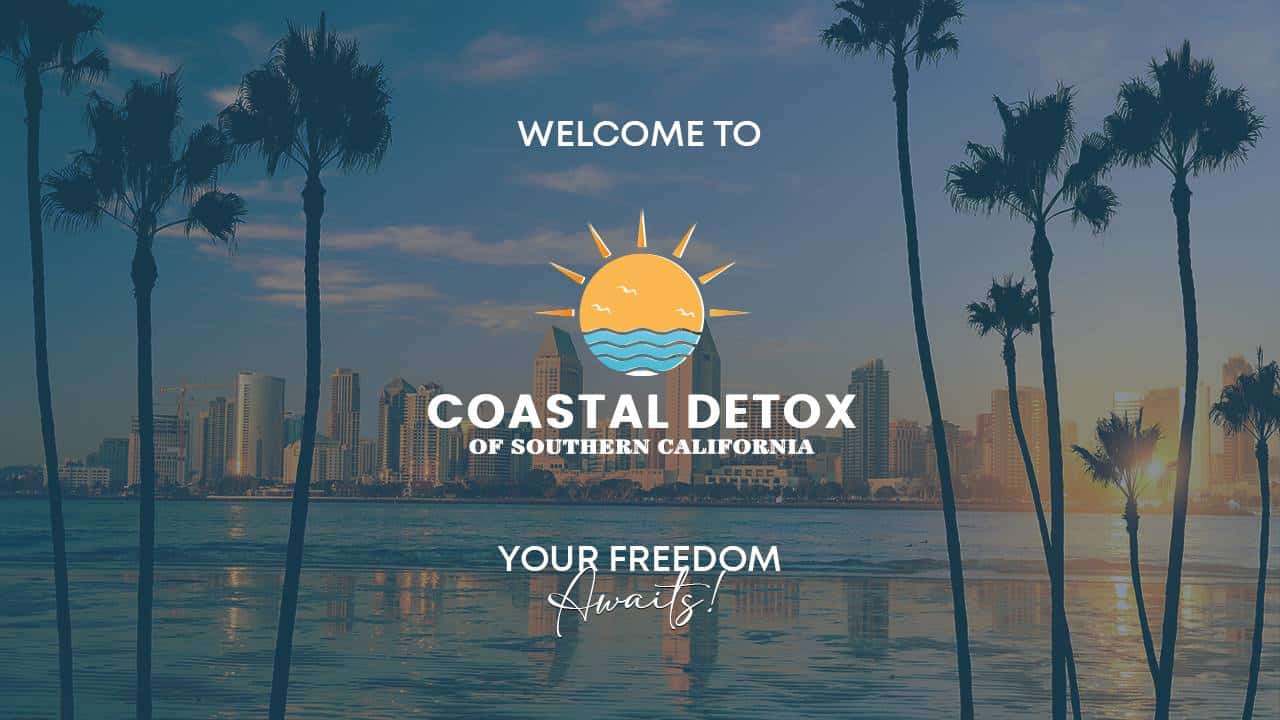
Heroin addiction is a crippling condition that affects both the mind and body. This highly addictive opioid quickly leads to physical dependence, making heroin withdrawal an inevitable and often painful process. The number of heroin users has nearly doubled between 2007 and 2012, reflecting the increasing accessibility and prevalence of the drug. As a result, the demand for safe and effective heroin detox has grown significantly.
Struggling with heroin and looking for a safe place to get help in Southern California? At Coastal Detox of Southern California, our heroin detox program offers around-the-clock medical care, a calm and private setting, and a team that truly understands what you’re going through. Whether you’re searching for a heroin rehab in San Diego or want a medically supervised detox in California, we’re here to help you take that first step—safely and without judgment.
Heroin detox is the first step in getting clean, and it’s about more than just getting the drug out of your system. At our San Diego detox center, we monitor you 24/7 to ease withdrawal symptoms and prevent complications. The goal? Help you feel more like yourself again—safely and with medical support.
We use evidence-based medications, hydration therapy, and compassionate care to support your body and mind throughout the detox process. Your safety and comfort are our top priorities.


We provide a safe, comfortable, and effective environment to our patients.
Recognizing the signs of heroin addiction can be lifesaving. Heroin use disorder affects individuals physically, mentally, and emotionally. There are various signs to be wary of, including common side effects, severe (atypical) side effects, and overdose signs. Common symptoms include:
If you or someone you love is experiencing these symptoms, seeking substance abuse treatment at a heroin detox center can help prevent further damage and start the process of recovery.
Atypical users are those who have an uncommon reaction to heroin. Most possible solutions were discovered through a review of hospital data. Occasionally, the response was prolonged, lasting until the next day in some cases and several days in others. The heroin, in these cases, was likely contaminated; heroin distributors may have blended in other harmful substances, releasing a “bad batch” into the community.
It is vital to know the danger of swallowing tainted heroin, which may have more severe side effects than pure heroin. The following signs, according to the Centers for Disease Control and Prevention, are indicative of atypical heroin reactions that may occur:
Overdose Symptoms:
Heroin withdrawal symptoms occur when an individual who is dependent on the drug stops using it. Acute withdrawal symptoms typically begin 6-12 hours after the last dose, peak within 1-2 days, and gradually subside over the next 5-7 days. Some individuals may also experience post-acute withdrawal syndrome (PAWS), which can include anxiety, depression, and lingering cravings for weeks or months.
While heroin withdrawal is not typically life-threatening, it can be extremely uncomfortable and lead to complications. At Coastal Detox of Southern California, our withdrawal management team ensures that each client receives personalized care, easing symptoms through medication-assisted treatment (MAT) and holistic support.
While heroin withdrawal is not typically life-threatening, it can be extremely uncomfortable and lead to complications. At Coastal Detox of Southern California, our withdrawal management team ensures that each client receives personalized care, easing symptoms through medication-assisted treatment (MAT) and holistic support.
Although heroin withdrawal treatment is not usually fatal, it can lead to serious health risks if not properly managed. Individuals suffering from opioid use disorder may experience severe dehydration, heart complications, and mental health issues such as depression or suicidal thoughts. This is why medical supervision is crucial during heroin detox.
At Coastal Detox of Southern California, we utilize medically supervised detox protocols to ensure that heroin withdrawal symptoms are managed safely. Our team provides 24/7 monitoring, hydration therapy, and MAT options such as:
Our goal is to make withdrawal treatment as smooth as possible, giving individuals the best chance at long-term recovery.
From the moment you arrive, you’ll be guided through a personalized detox plan that focuses on your comfort, safety, and readiness for long-term recovery. We treat withdrawal symptoms with proven medications, provide calming amenities, and offer support for co-occurring mental health issues if needed.
If you or someone you love is struggling with heroin addiction, don’t wait. Heroin detox is the crucial first step toward freedom from addiction, and Coastal Detox of Southern California is here to guide you every step of the way.
Detox is just the beginning. Afterward, we can help you transition into our residential treatment program—or refer you to trusted partners if needed. Lasting recovery from heroin is possible, especially when you have the right support and structure in place.
Wondering “How do I get started with heroin detox in California?” or “Is there a detox center near me?” Just call. We’ll verify your insurance, walk you through the process, and make sure you or your loved one gets help—fast.
Don’t wait. Call Coastal Detox SC today and take the first step toward recovery.
We aim to heal the internal affliction that causes substance abuse disorder in order for each drug addict and alcoholic to experience a fulfilling and successful life in recovery.
Contact Us Today for a Free Confidential Assessment and Insurance Verification.
Contact Us Today for a Free Confidential Assessment and Insurance Verification.
At this time we do not accept Medi-Cal , however private pay options are available.
Accessible for individuals with disabilities and accommodating to pets upon approval.
Call now to start your journey to freedom from addiction. Our compassionate care, tailored to your needs, offers hope and success. Verify insurance today.
All calls are 100% free and confidential
